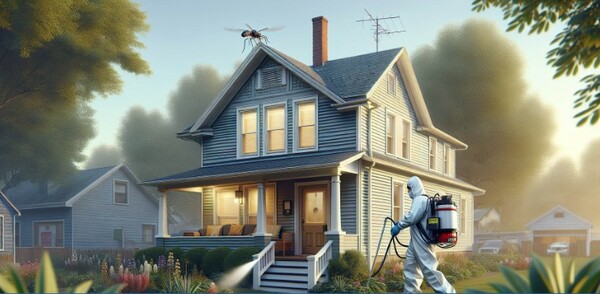Notifications
ALL BUSINESS
COMIDA
DIRECTORIES
ENTERTAINMENT
FINER THINGS
HEALTH
MARKETPLACE
MEMBER's ONLY
MONEY MATTER$
MOTIVATIONAL
NEWS & WEATHER
TECHNOLOGIA
TV NETWORKS
VIDEOS
VOTE USA 2026/2028
INVESTOR RELATIONS
COMING 2026 / 2027
ALL BUSINESS
COMIDA
DIRECTORIES
ENTERTAINMENT
FINER THINGS
HEALTH
MARKETPLACE
MEMBER's ONLY
MONEY MATTER$
MOTIVATIONAL
NEWS & WEATHER
TECHNOLOGIA
TV NETWORKS
VIDEOS
VOTE USA 2026/2028
INVESTOR RELATIONS
COMING 2026 / 2027
 Jackson Owen -
July 27, 2024 -
Business -
pest control for residential
pest control services in Lansing
-
387 views -
0 Comments -
0 Likes -
0 Reviews
Jackson Owen -
July 27, 2024 -
Business -
pest control for residential
pest control services in Lansing
-
387 views -
0 Comments -
0 Likes -
0 Reviews

Pest control is essential to maintaining a healthy and safe living environment. Whether you’re dealing with ants, rodents, or bed bugs, effective pest management ensures that your home remains a sanctuary free from the nuisances and hazards pests can bring. In Lansing, common household pests can cause significant damage and pose health risks. This guide will cover effective pest control for residential and highlight pest control services in Lansing to help you maintain a pest-free home.
Residential pest control involves managing and eliminating pests that invade homes. These pests can range from insects like ants and cockroaches to rodents and termites. Effective pest control protects your property and health by preventing the spread of diseases and damage to your home. Understanding the nature of these pests and how they operate is the first step toward effective management.
Lansing is home to a variety of pests that commonly invade residential areas. Some of the most prevalent include:
Recognizing the signs of a pest infestation early can help you take swift action. Common indicators include:
For minor infestations, DIY pest control for residential methods can be effective. Some techniques include:
Hiring professional pest control services offers numerous benefits:
When selecting a pest control company, consider the following factors:
Integrated Pest Management (IPM) is a holistic approach to pest control that emphasizes long-term prevention and minimal use of chemicals. The steps involved in IPM include:
Preventive measures are crucial for maintaining a pest-free home. Some tips include:
Pest control for residential areas is vital for ensuring a safe and healthy living environment. By understanding the common pests in Lansing, recognizing the signs of infestation, and implementing both DIY and professional solutions, you can effectively manage and prevent pest problems. Integrated Pest Management (IPM) offers a sustainable approach, while preventive measures help maintain long-term pest control. If you encounter severe infestations, seeking professional pest control services in Lansing is recommended to ensure comprehensive and lasting solutions.
